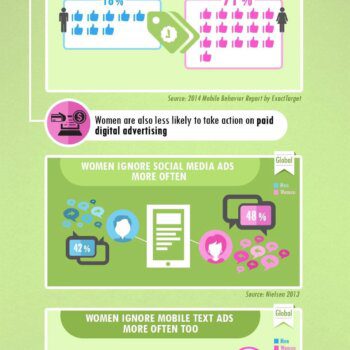From a managerial perspective, very few ideas are more important than the dynamics of motivation. Understanding what moves employees toward efficiency and fulfillment is at the core of any manager’s responsibilities. Motivation in the workplace is primarily concerned with improving employees’ focus, often through pursuing positive incentives and avoiding negative ones.
Theories of motivation are of course rooted in psychology. An individual must direct their attention toward a task, generate the necessary effort to achieve that task, and persist in working toward it despite potential distractions. Various theories have attempted to identify the factors that contribute to effective employee motivation, most of which are easily divided into four broad categories:
- Needs-oriented theories
- Cognition-oriented theories
- Behavior-oriented theories
- Job-oriented theories
Needs-Oriented Theories
At its most basic, motivation can be defined as the fulfillment of various human needs. These needs can encompass a range of human desires, from basic, tangible needs of survival to complex, emotional needs surrounding an individual’s psychological well-being.
Hierarchy of Needs
The most well-known example of a needs-oriented theory of motivation is Maslow’s Hierarchy of Needs. Maslow postulated that needs should be fulfilled in a particular scaffolded order, with food, water, and shelter in the bottom, most fundamental two tiers and intangible needs such as fulfillment, self-esteem, and a sense of belonging in the upper three tiers. While this framework makes a certain amount of logical sense, critics have noted that there have been minimal data that suggest employees strive to satisfy needs in the workplace in accordance with this hierarchical framework. But the fundamental idea behind Maslow’s model is that individuals have various tangible and intangible desires that can be leveraged in the use of motivational incentives.

Maslow’s Hierarchy of Needs: Maslow’s Hierarchy of Needs postulates that need must be fulfilled in a hierarchical order, from basic needs such as food and water to more intangible needs such as self-esteem and a sense of belonging.
Need for Achievement Theory
Atkinson and McClelland proposed the Need for Achievement Theory, which highlights three particular needs in the context of the workplace: achievement, authority, and affiliation. Atkinson and McClelland hypothesized that every individual has a need for all three of these intangible segments of fulfillment but that most individuals lean more toward one of the three. For example, a salesman with a quota to fulfill would be best paired with an achievement-oriented manager, as such a goal-oriented approach toward, for example, a specific number of sales would be highly motivating.
Cognition-Oriented Theories
Cognition-oriented theories generally revolve around expectations and deriving equitable compensation for a given effort or outcome. There are two main cognition-oriented theories: equity theory and expectancy theory.
Equity Theory
Equity Theory is based on the basic concept of exchange. It values the culmination of employee experience, skills, and performance against their respective compensation and advancement opportunities.
Expectancy Theory
Expectancy Theory is similarly derived, but it states this relationship through an equation: Motivation = Expectation (Σ Instrumentality × Valence ). Instrumentality simply refers to the belief that a level of performance will result in a level of outcome; valence refers to the value of that outcome.
Essentially, Expectation Theory and Equity Theory demonstrate the value of rewarding an employee’s investment of time and effort with appropriate compensation.
Behavior-Oriented Theories
The underlying concept of behavioral approaches to motivation is rooted in theories of “conditioning,” particularly the work of psychologist B.F. Skinner. Behaviorism stipulates that an employer should promote positive behavior and deter negative behavior, generally through a basic rewards system. Variable compensation, as found in many sales jobs, is a prime example of this concept. When an employee makes a sale, the employer provides a certain portion of income to the employee that executed that sale. This positive reinforcement serves as a behavior modifier, motivating the employee to repeat this behavior and make more sales.
Job-Oriented Theories
Job-oriented theories adhere to the view that employees are motivated to complete tasks effectively because of an innate desire to be fulfilled or to contribute and that compensation and other forms of incentives are less important to them.
Two-Factor Theory
Frederick Herzberg’s Two-Factor Theory is the most well known of the job-oriented theories, despite the fact that it has not been supported by empirical evidence. Herzberg states that salary, benefits, status, and other tangible benefits for employees can only reduce dissatisfaction and that intangibles—such as autonomy, natural interest, recognition, and the responsibility of the work itself—are the true basis of motivation.
Work Engagement Theory
Other theories, such as Work Engagement Theory, similarly propose that intellectually fulfilling and emotionally immersive work is the foundation of a motivated workforce.
Clearly, our understanding of workplace motivation could benefit from further research and empirical analysis. But the variety of theories also highlights the fact that people can be motivated by different things in different circumstances. Effective organizational management requires an understanding of these theories as well as of their possible limitations.
About the Author
This article is produced by Boundless.com. See more.





























